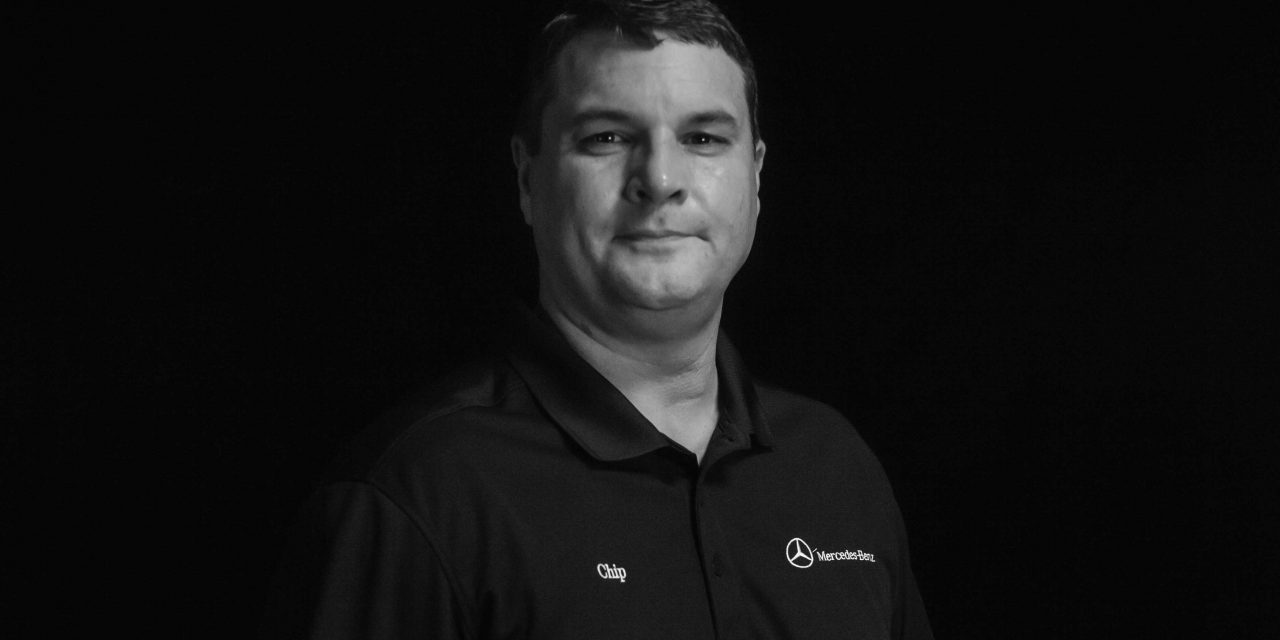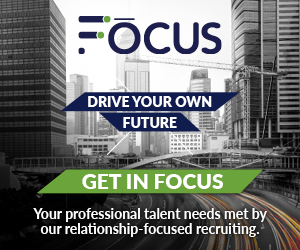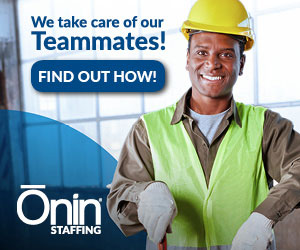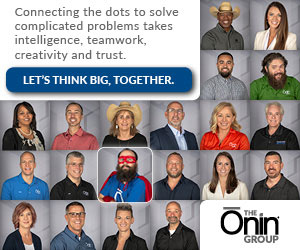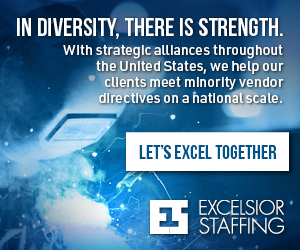Not many people can see the big picture, and even fewer can guide it, but Chip’s talents seem to uniquely coalesce as a leader to deliver on both accounts. Chip’s leadership style exemplifies empathy and a deep sense of thoughtfulness about individuals and communities, as well as the state of business. Chip reminds us that the leadership decisions we make on a personal level impact a complex interdependent system of people and processes.
Right now, companies across industries continue to deal with high employee turnover and economic uncertainty, and the stakes are high. As leaders, we are all trying to lay the groundwork for a better future. Chip’s wisdom provides deep insight into this difficult and meaningful process.
This is Take5.
Shane: Welcome — we are here with Chip Fuqua. We also have Madeline Boles, who is our Director of Business Development here at Ōnin. She will also help facilitate the interview. This is the first time we’ve had three people participating in Take5, so this will be new, but it’ll be a lot of fun. What has been your greatest professional accomplishment up to this point in your career?
Chip: I would say having the opportunity to take advantage of working for the same company for almost 23 years at the same location. That longevity shows that Mercedes prioritizes and is willing to invest in retention and the long-term development of people.
Also, there have been so many opportunities presented to me. In that period of 23 years, I’ve worked in nine different positions, including administration, operations, service, parts, assistant to CEOs, and lots of different things. I’m most proud of taking advantage of those opportunities when they were presented to me, and I have learned a lot along the way.
Madeline: For context, how many people enter and exit the plant, if you would guess, a day?
Chip: Based on the last statistic I’ve seen, somewhere between 7,000 and 8,000 people enter and exit the main campus. If you add Bibb County, that number increases even more. Of course, there’s a big population of Mercedes team members at our plant, but there’s also a huge workforce on top of other contractor service providers that fully support our operations.
Shane: So, you’ve been at the plant as an MBUSI employee for 16 years, but before that, you were still at the plant for 6 years with IBM. What did you do then?
Chip: I had a cousin who worked as a database administrator at the Mercedes plant for IBM. Like many people coming out of college, I had no clue exactly what I wanted to do or where I wanted to go. I did the standard interviews for positions with big-name companies and small-name companies. In the end, my cousin told me, “This is a great gig. It’s something new. You won’t be starting at the top tier, but it’s a great place to start.” So, I interviewed and got the position with IBM as a help desk administrator. I started there straight out of college, fixing computers, fixing phones, pulling cables under desks, and those kinds of things.
Shane: I think there’s a hidden message in there, especially for entry-level people: Just get started, show up, do the work, and then watch what happens.
Chip: I’ve never been the kind of person who set goals for myself that I couldn’t achieve on my own. For example, someone might say, “In five years, I want to be a manager in this company,” but my method has always been, “In five years, I want to have educated myself, be prepared, and be seen by others as the ideal candidate to be a manager.” That goal-setting method has worked pretty well for me and has helped me not set unrealistic expectations regarding something that, in the end, I can’t control every aspect of.
Number two, these different positions that have come in front of me have just popped up. Whether a friend or a colleague thought I might be interested or something just came up, I wasn’t actively seeking and applying for 30 different things only to achieve one. Something else I’ve realized over the years is that everybody’s career path is quite individual based on what they want, what they need at certain times in their life, and where they want to go.
Many people have asked me for coaching and mentoring advice in the past, “Hey, what should I do next? And for the next and the next and the next step?” I can’t find myself defining that for them, but I share my story. My story is not the only way to succeed. Success is going to be unique for everyone. For me, it’s important to work at a place that provides fast opportunities to take individual paths where you want.
Shane: You weren’t necessarily looking for those positions, but you were putting yourself in place to be ready. If someone right now was trying to figure out what’s next in their career, what would your advice be?
Chip: Keep your eyes open, stay flexible, and be willing to do something that’s outside of your wheelhouse. My college degree is in information systems, so I’m an IT guy by trade. I only worked in IT positions for six years out of my 23-year career. The main things for me were to be flexible, be open, and be willing to do something that was outside of my current experience or trade level. That advice isn’t for everyone, to be honest. But for me, t opened up more doors and opportunities versus just looking at a straight-line career path in one technical aspect of my field.
Shane: The next question is a bit of an antithesis to this last question. What’s your favorite failure or one that’s taught you an important lesson or put your life on a new trajectory?
Chip: In this case, the failure that taught me an important lesson wasn’t necessarily drastic. A couple of years into my career, I worked in a service desk position. My responsibility was to process internal customers’ requests and get those things fixed.
We had different shift patterns of coverage for that position. In my early years, I worked a later shift, but my shift eventually migrated to the day shift, which started at 6:00 a.m. For a 25-year-old single guy, and the lifestyle that tends to bring, being prepared to come to work and be effective at 6:00 a.m. was quite the challenge for me. I had a few instances of being tardy and especially of not being available when I needed to be.
My manager at the time pulled me to the side and said, “Hey man, I understand where you are. I understand the reasons why you’re struggling, but you have to understand that this obligation is important. It’s not just important because it’s a requirement of the job. It’s important because people are depending on you. People need you there to help them.”
I learned two things from that discussion. Number one, I knew I had to make some adjustments in my life to make sure I could fit the needs of what I’m trying to do from a job and career standpoint.
As a second lesson that was just as important, if not more so, I remember the leadership style that manager took with me to ensure that the conversation was corrective. He helped me understand the situation, and he coached me, and cared enough about me to help me understand the “why” behind the correction.
I’m still good friends with that person. I appreciated that moment because of what it taught me, but it also really opened my eyes to start paying attention to the leadership traits and characteristics of people around me. As a result, I began to pay attention to characteristics that I could pick up, like being empathetic and trying to understand what’s happening behind the scenes instead of just taking action. I remember that moment for all of those reasons. Now, in my career as a manager and a leader, I especially try to take that approach with my leadership style.
Shane: Looking back on your journey and knowing what you know now, what is the one piece of advice you would give your 25-year-old self?
Chip: I would tell myself to invest as much and as often as possible in myself. One aspect is health. My 25-year-old self didn’t care much about that, not to say that I was reckless by any means. Looking back, you can’t take care of yourself enough for personal reasons, but your health also affects your ability to contribute to others.
Second is learning, and I don’t mean just formal learning, meaning college, school, degrees, certifications and so forth. Those things can be quite important, but I also think that the continued process of being open to learning new things is important.
I did a good bit of continued learning at that age, but I don’t think you can ever do enough of that, especially in this day and age with all the information and resources that are available at your fingertips. I find myself actually needing to put all of that down so I can focus on what’s around me because I’m so intrigued by how easy it is to learn new things these days. It’s encouraging to know you can have one more skill set, one more tool, and one more knowledge base to contribute somewhere to be of value, whether that’s in your personal life or in your career.
Shane: If you were hiring your replacement, what are the few must-haves for the Chief of Staff position?
Chip: This is related to my position, but it’s a bit uni-versal for me too. A key is to be a team player but also be willing to educate yourself and have an opinion. For me, being a team player doesn’t mean being a person who can sit amongst five or six others, nod in agreement, and move on with the group.
A team player is also someone who’s willing to hold a different position and actively put that idea on the table for conversation so that the group comes to a better consensus in the end with more inputs.
A leader in this position should also be relatable and personable. Everybody has different personalities, so that’s not a one-size-fits-all requirement. Some of the biggest joys and rewards that I have in my job are really simple things: It’s smiling at somebody; it’s catching up with somebody you have worked with for a long time but haven’t seen in a couple of months; it’s coach-ing somebody new who doesn’t know their way. Those simple things, like greeting somebody and shaking their hand, matter.
I know these are kind of simple and cliche statements, but I promise you, it’s the most rewarding part of my day. From a cultural standpoint, being personal and relatable is quite the big deal. From a leadership style perspective, I want to bring people together, whether it’s inside of our facility or outside of our facility. That’s part of my responsibility, so having the personal skills to do that is quite the key.
Madeline: Let’s talk about that for a second. There’s a lot of frustration in manufacturing right now with the workforce at large, and there are a lot of reasons for that. Supervisors and those who are directly above them are frustrated and tired because they’ve been training and retraining people who just end up leaving. Some companies have developed a jaded mentality when it comes to the workforce. In your environment, how are you inspiring those around you to continue to try to nurture every new hire who enters MBUSI?
Chip: I don’t think it’s just our time or our generation, but if you think you can do the same thing the same way for 20, 25, 30 years — you’re going to find the results aren’t what you expect. That’s true for our time as well.
I have two pieces of encouragement for peers and other organizations. First, we’ve had to resolve with ourselves that we have to think differently, and we have to do things differently. There is a different environment with different people and different needs coming from our workforce right now. We need to try to adapt to those situations as much as possible as long as we can still perform our operations, and we have. I’m sure we have much more to learn and more opportunities to do so, but that’s been a key to success.
The other point is, don’t be scared, and don’t think it’s minimal to help people with simple topics and simple skills. I used the example in our conversation earlier of being a 25-year-old guy who couldn’t show up to work on time at 6:00 a.m. Somebody taking the time and the opportunity to coach me a little bit about that was very meaningful. There are a lot of people today who, for whatever reason, may not have those basic soft skills or who may not understand the importance of those skills. Being a supervisor and a leader also means being a role model and a coach and taking time to step back and share some of those things.
Madeline: Do you have anything you can share about how MBUSI has adapted to workforce challenges?
Chip: In our environment, it’s all about work/life flexibility. We have times when we run the traditional schedule — we’re talking about the 40-hour work week and those kinds of things. There are also times when we have high demands, high volumes and changes to new products. From an operating time standpoint, much more is needed at those times.
What we’ve tried to do, especially over the last couple of years, is to have a variety of shift models available to our team members so that they have the opportunity to choose a schedule that fits their lifestyle.
When we’re talking about the manufacturing environment with our production team members, no two people have the same desire. It’s very individual. One might say, “I like rotating shifts because, when I’m on night shifts, I can schedule my doctor’s appointments and other things that I want to do.” You also have team members who say, “I want to work a fixed day shift,” or, “I want a fixed night shift because this aspect in my life drives me to do so.” Having kids or not having kids, having daycare or not having access to daycare — all of those situations come into play in a work schedule.
Creating different opportunities is our approach. And for sure, there are more opportunities to create as much flexibility as we can stand in a manufacturing organization for our team members’ work/life balance needs.
Shane: Over the next 10 years, there are going to be a lot of changes, especially in your world, especially considering where cars have come over the past 10 years. What do you see changing over the next 10 years in the automotive industry?
Chip: The best thing I can correlate the automotive situation to is the smartphones that are sitting in front of us. In my generation, I’ve seen the smartphone evolution from the starting point. The transformation to electric vehicles is similar to that, and we’re figuring out what that means along the way. I’ll use a recent announcement as an example.
The state of California announced that after 2035, they will only register EV vehicles as new vehicles, and there are other countries that are leading the pack in that as well. I believe that in Norway, 60% plus of all new vehicle registrations are already electric vehicles.
Policy and market disruptions from a few key players are pushing everyone to evolve away from gasoline. If you want to be in the game, then you have to transform and transform consumers as well. There are so many different aspects that come along with that. It’s not just a different power system in a vehicle. It’s the whole ecosystem around it. It’s about your habits associated with it.
Today, for example, I’ll run my car down the interstate until the little light pops on that says, “Hey, you’re about to run out of gas in 50 more miles,” and likely, I’ll push driving it 30 more minutes before I stop at the gas station and fill back up. There is a little bit more planning and thought process that goes into an EV vehicle until our whole infrastructure catches up.
Not just that, it’s the ecosystem around it. I mentioned how important the sustainability aspect is for consumers and for companies, but what’s the source of the electricity that you put in your car? In the future, it won’t be coal burning or other things. It will be solar and green power, or hydrogen created by green power, or whatever it is. The whole ecosystem and thought process is changing, and it’s amazing to me.
Madeline: When you’re on the cutting edge of innovation, I would imagine that change is the only constant. Do you want to speak to how Mercedes and how you stay on the change curve?
Chip: It’s all about flexibility. I’ll take three keywords from our Mercedes-Benz strategy: digital, sustainable and electric. It’s no secret that, in the automotive industry, we have a huge transformation at the moment as we move to electric vehicles. That transformation is just one of many over the past however many years.
For us, we’ve been in a constant state of something new — it’s a new model, a new launch, a new challenge, a pandemic, a supply chain shortage, a new system. There is always something that we have to deal with.
It’s about taking in our day and age and all of the available data and information and translating that into something for decision-making.
There’s so much opportunity. Electric cars are transforming the world. We’re determining what a society of electric cars is versus one with combustion engine cars and what that means for us and the processes and the products that we’re offering. It also plays into sustainability, meaning, what are we doing now to take care of the world for the next two, three and four generations after we’re gone?
That is not only key for us as responsible community members and members of this business but also valued from a customer aspect too. Many decisions have been made about how sustainable your product is, what materials you’re using, and what energy sources you already use to produce your products. Even more decisions will be made by consumers in the future. We have to consider those things from a responsibility standpoint but also from the standpoint of customer attraction.
In 25 years at MBUSI, we went from one assembly hall that was building one model into growing into X number of products, including combustion engine vehicles and electric vehicles over the next two to three years at much higher volumes and with a drastically larger footprint of space and people. It’s been fantastic for me to be part of that journey and to see all that growth. That’s one of the main contributors to the ever-changing environment — constant growth. Growth is a big driver of change.
Shane: Are there any other things that you see on the horizon in the next decade from a workforce perspective?
Chip: Many of our discussions right now are about how we enable and reach people who either aren’t currently in the workforce or who don’t want to be in the workforce.
It’s hard to argue with raw math. The available job opportunities are far higher than the number of people available to fill them now versus years past. That brings forth interesting challenges and opportunities for a lot of creativity.
The broad brush methods worked in the past when you felt like your jobs had a certain position of attractiveness, and you didn’t have to worry about people who wanted to work coming to your doorstep. That’s not the circumstance today, but things could change. We could have that day again in the future, but it’s not right now. Our focus as a company, as a good steward and community participant, is to see what we can do to help raise the whole tide so all the ships can float.
We’re focused on entry-level workforce opportunities and trying to make jobs attractive and help break down barriers to enable people who have the desire to work to take those positions. It’s a nose-to-grind-stone approach, not a broad brush tactic. We do individual casework, almost to bring the whole workforce environment up.
If you bring the whole participation level up, then it helps everybody and puts everybody back in the positions where they want to be from a skills perspective.
Madeline: Your organization has so many different departments with different skill sets. It sounds like what you’re describing is creating true, entry-level opportunities within each of those realms and building your team instead of finding someone with that exact skillset from another organization and plugging the hole.
Chip: We have a lot of community partners that help us, support us, and do a lot of the work, to be honest. For us, it’s about reaching people, especially kids at the right age, to give them perspective about what a manufacturing career could bring them.
As I mentioned, I had no idea what I wanted to do before graduating college at 22 years old. I knew I was pretty good in certain subjects in school, which, at least, led to a specific path that education took me down at the time. But really, what we’re trying to do is get knowledge, information, awareness and perspective into the school systems so the generation has an understanding that “If I do this, this and this, then this is what I can achieve.”
You talked about my story of going from a help desk operator to, in this case, Chief of Staff. One of our current vice presidents at the plant started working at our plant as a production team member. That opportunity to grow is there. It’s not granted or given. You have to work for it, but it’s there.
Shane: You don’t hear a lot of rags-to-riches success stories like that anymore, at least not in the white-collar environment. Stories like, “I worked in the file room or something, and now I’m president of the company,” are rare, but you do still hear it in manufacturing. Obviously, everybody’s talking about the recruiting crisis, but getting people to stay at a job is also a real challenge for companies across industries right now. Do you think we do a good enough job of letting people know that opportunity is possible?
Chip: We should. What you mentioned is a lot about culture. There’s individualization inside of there too. There are people whose opportunity spectrum isn’t just within the four walls of where they’re working right now, which is fine. There are still people who would desire to stay with the same company at the same place if they had perspective about the opportunities they could have. There’s a big burden and task for the companies to make sure that they’re doing that appropriately.
Again, you can never do that enough, but I also think that there are those conversations that need to be had for the individuals to recognize that it’s up to them as well to do their part, seek opportunities, and educate themselves.
Shane: That’s so important. Believing that the only way to grow is up the company ladder is a misnomer for many folks. It’s not true. Often, people who grow out aren’t your best “grow uppers.” They’re not people leaders. They’re doers.
Chip: We work hard at that. We always have the opportunity to do more and more of that to make that space where being an expert in what you do is recognized. Whether it’s on the manufacturing side, on the operations floor, in engineering, or whatever it is — that expertise is needed as well.
We need those people who have a broad base of knowledge, who can train others, who can bring others along, and just provide flexibility to the whole organization. Our brand obviously is a very recognizable one, especially here in Alabama, being one of the bigger companies that operates here. It’s our responsibility as the leaders of that company to live up to the same reputation as the brand does for our people.
Shane: The responsibility a company as large as yours has is massive. I can’t imagine. You’re not just building great cars. You’re building people, and you’re helping those people build families, and they’re helping those families build communities. It’s massive, and you all are doing good work, so thank you.
Chip: Well, we try, and that’s also one of those things where we want to constantly do more and more of the right things. We are very conscious of our responsibility and take pride in it. Again, we have the heavy responsibility of making sure that we’re proper community partners and that we’re taking care of all of the ecosystems around us as well. Whether it’s the charitable organizations that we support or whether it’s our suppliers to make sure that they’re successful, we’re not successful without them. We need the whole system around us. That’s our responsibility as well, and we take that very seriously.
Shane Minor
Shane is the Director of Marketing at The Ōnin Group. He joined Ōnin in 2016 to lead the newly formed Marketing Team and communicate the culture of Ōnin to the world. Prior to Ōnin, Shane spent 16 years in creative, sales and marketing leadership positions for several organizations in the medical, tourism, economic development and outdoors industries.
Madeline Boles
Madeline Boles is The Ōnin Group’s Director of Business Development. Madeline transformed from a high school guidance counselor with no sales experience to become the highest performing salesperson at Ōnin. After being promoted to Area Manager and becoming the key account manager for a premier client, Madeline now helps drive Ōnin’s national sales department.

